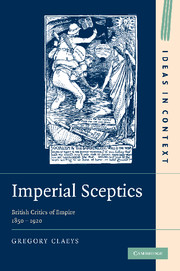1 - Positivist diplomacy
Published online by Cambridge University Press: 06 December 2010
Summary
COMTE, HUMANITY AND EMPIRE
It was one of Comte's most signal contributions to human order and progress that more than sixty years ago he summoned the citizenship of Europe to deliver itself from this ancient incubus of empire, and fulfil itself within the limits of the true city … He was, if ever a man was, in the higher sense of the word, a patriot. He loved France with a love which many of his critics have denounced as excessive. He made for her a claim which most other countries would consider extravagant. Yet as a boy he openly applauded the resistance of the Spaniards to Bonaparte, and as a man he as openly declared that if the French did not honourably restore Algiers to the Arabs, he hoped the Arabs would rise and drive them out of the country.
From that day to this we have cried aloud to our countrymen to respect international morality; in books, in pamphlets, in placards, in addresses, in speeches, in sermons, on platforms, and in pulpits, in newspapers, and in meetings, in the press, and in society. In India, China, Japan, Afghanistan, Burmah, New Zealand, Jamaica, in Zululand, in the Transvaal, in Abyssinia, in Egypt, in the Soudan, we have urged the claims of morality and peace, against aggression and Empire. Were we right or wrong? Have we spoken in vain to the conscience of Englishmen? I think not. The cause has in practice been betrayed; but the principle of international duty, international morality, is at least acknowledged by the conscience of our time.[…]
- Type
- Chapter
- Information
- Imperial ScepticsBritish Critics of Empire, 1850–1920, pp. 47 - 123Publisher: Cambridge University PressPrint publication year: 2010

